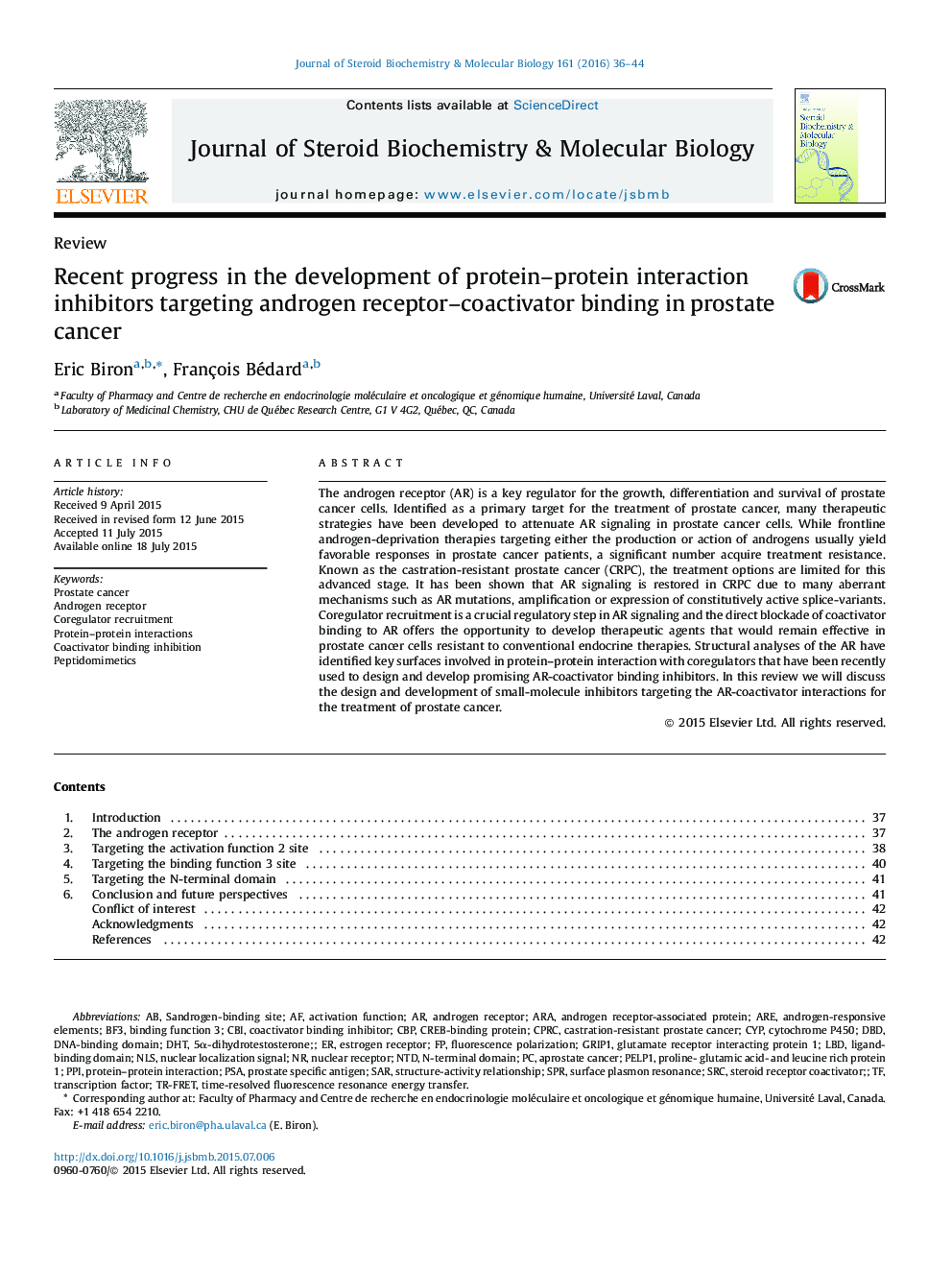| Article ID | Journal | Published Year | Pages | File Type |
|---|---|---|---|---|
| 1991241 | The Journal of Steroid Biochemistry and Molecular Biology | 2016 | 9 Pages |
•New therapeutics are needed to overcome resistance to androgen deprivation therapies.•Castrate-resistant prostate cancer cells are addicted to androgen receptor signaling.•Coactivator recruitment is vital for androgen receptor signaling.•Promising coactivator binding inhibitors have been developed.•These inhibitors retain their activity in castrate-resistant prostate cancer cells.
The androgen receptor (AR) is a key regulator for the growth, differentiation and survival of prostate cancer cells. Identified as a primary target for the treatment of prostate cancer, many therapeutic strategies have been developed to attenuate AR signaling in prostate cancer cells. While frontline androgen-deprivation therapies targeting either the production or action of androgens usually yield favorable responses in prostate cancer patients, a significant number acquire treatment resistance. Known as the castration-resistant prostate cancer (CRPC), the treatment options are limited for this advanced stage. It has been shown that AR signaling is restored in CRPC due to many aberrant mechanisms such as AR mutations, amplification or expression of constitutively active splice-variants. Coregulator recruitment is a crucial regulatory step in AR signaling and the direct blockade of coactivator binding to AR offers the opportunity to develop therapeutic agents that would remain effective in prostate cancer cells resistant to conventional endocrine therapies. Structural analyses of the AR have identified key surfaces involved in protein–protein interaction with coregulators that have been recently used to design and develop promising AR-coactivator binding inhibitors. In this review we will discuss the design and development of small-molecule inhibitors targeting the AR-coactivator interactions for the treatment of prostate cancer.
